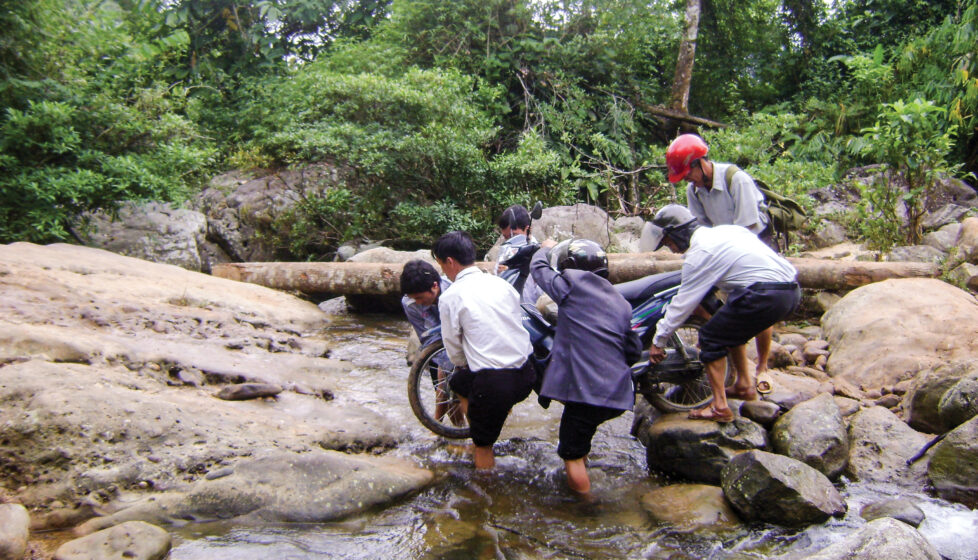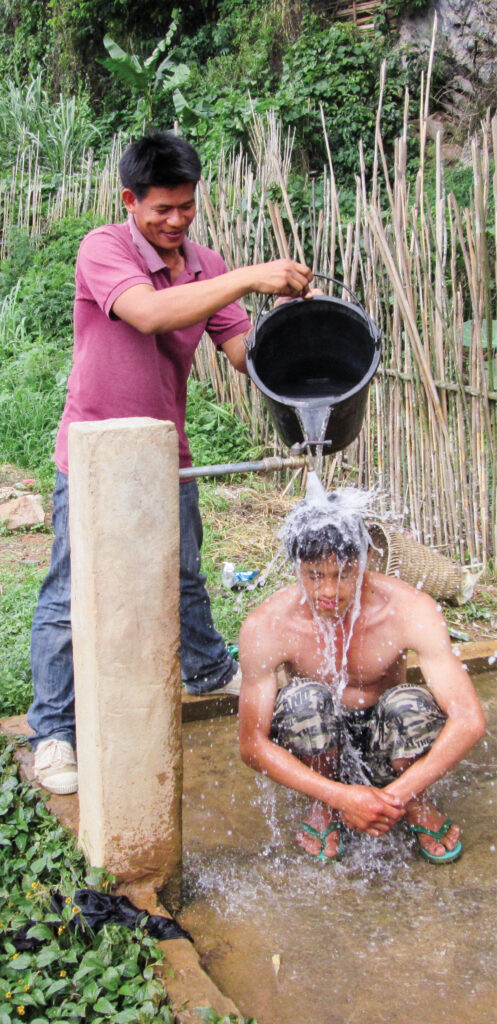Front Line Workers Refuse Commands to Stop Preaching
Vietnam

“No, you cannot tell others about Christianity!” the teacher scolded. “You cannot do this because Christianity is an American religion and a very bad religion.”
The high school teacher’s harsh words neither surprised nor discouraged young Hanh. Ever since seeing how the gospel had changed his alcoholic father, he had wanted to follow Christ and tell others about Him. But being a Christian and sharing your faith in communist Vietnam are not without consequence. Sharing Christ is illegal, and Hanh knew it. Those who evangelize are harshly reprimanded. Some have been fined or kicked out of school, while others have been beaten, imprisoned and expelled from their villages.
Hanh is one of several dozen young Vietnamese Christians completing a Bible study on the life of Christ. The group first began meeting two days a week to go through the six-book series, but their hunger to learn was so great that they decided to meet nightly.

After being confronted by his angry high school teacher, Hanh prayerfully considered his response. “I will stop following Christ if you can explain one thing for me,” he said. “Why does the cow eat grass, which is green, but when it creates milk it is white?”
At a loss for words, the teacher immediately marched Hanh to the principal’s office, hoping he would be kicked out of school. Instead of fearing the principal’s actions, however, Hanh shared his faith with him. The principal eventually dismissed Hanh after cautioning him not to evangelize at school.
Hanh chose not to heed the principal’s warning. Like the apostles, he could not help but speak the things that he had seen and heard (Acts 4:20).
Hanh isn’t the only student in his group being persecuted for telling others about Jesus. A VOM worker said the police are offering gangsters money to stop the young Bible students. The gangsters threaten to beat the students if they share the gospel, and on one occasion they poured sand in the gas tanks of the students’ motorcycles, ruining the motors. The students had to leave them outside a remote village and walk the rest of the way. “But the students have not given up,” the worker said. “They have continued to go back.”
Colombia: “Today No Preaching”
Asking for permission to preach is a way of life for “Leonardo.” Merely forgetting or refusing to ask can result in death at the hands of the guerrillas or paramilitaries in Colombia’s “red zones.” Pastors in these areas are viewed as obstacles to the groups’ political ambitions because young people who become Christians are no longer attracted to the groups’ violent lifestyles.
“They give you a time to start preaching, and you have to begin and be done at that time,” Leonardo explained. “There was no nighttime preaching or walking outside [allowed], and I always had to give a note if I was going to go anywhere.”
Leonardo’s church soon transferred him to a different area, where he worked with people who had been displaced by guerrilla groups in the red zones. But his new home was not free from opposition, either. “There are gangs, hitmen,” he said. “I have been there two years. Two times they have not let me preach.” The gangs stopped Leonardo in front of his church and denied him entrance, saying, “Today no preaching!”
But Leonardo found another place to preach. With a speaker and microphone in hand, he began preaching outdoors. He first began preaching to young boys, and in a short amount of time his outdoor church grew to include 70 adults and 53 children. Most had never heard the gospel, but they soon placed their faith in Christ and were baptized. Now Leonardo is training several others to preach.

He knows it is dangerous to share the gospel so openly, but he also knows that he is not alone. God is with him, and he has the prayers and support of his brothers and sisters around the world. “I feel the warmth of my brothers outside … the appreciation you have for us, our service.”
“No” Means New Opportunities
When authorities told Hanh and Leonardo to stop preaching, they found even more opportunities to share the gospel. VOM comes alongside these front-line workers to equip them with the resources they need for evangelism and discipleship.
Jesus told us to go and teach all nations; he said nothing about getting permission from others (Matt. 28:18–20). Our persecuted family members are obediently living and evangelizing in some of the world’s most difficult mission fields. May our Christian witness be unhindered by earthly restrictions and empowered by the Holy Spirit.


 Guide
Guide